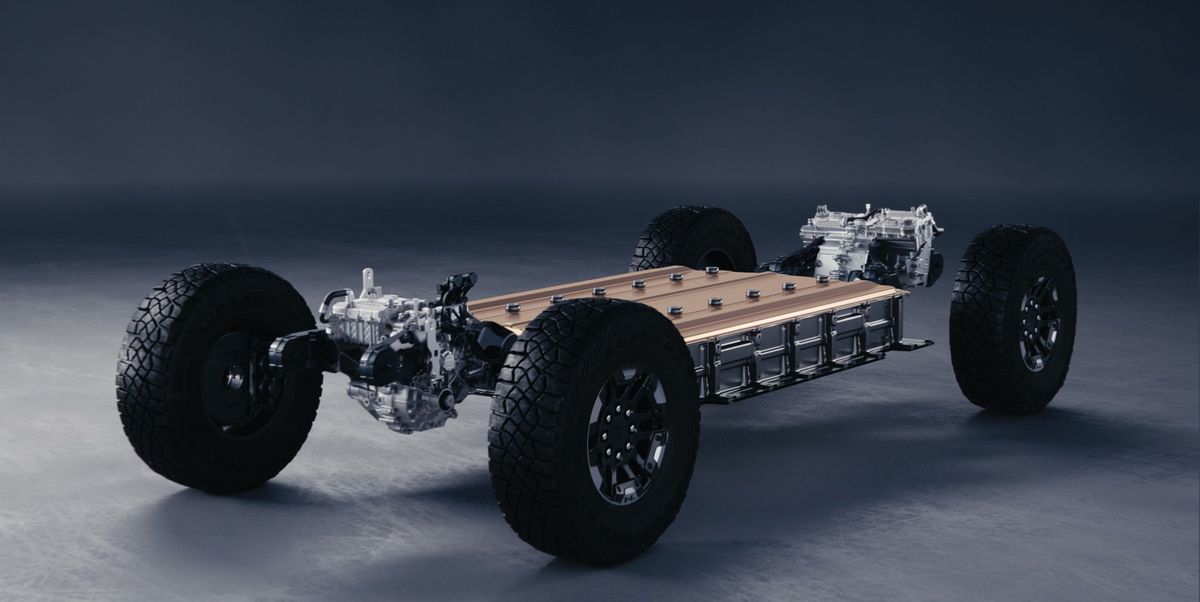These Are the World's Biggest Battery Manufacturers for Electric Cars

Contemporary Amperex Technology Co. Ltd., better known as CATL, is poised to remain the largest global seller of batteries for electric and hybrid cars in 2022. The Chinese company sold roughly 70.9 gigawatt hours worth of batteries through the first half of 2022, marking a 115.6 percent increase in sales relative to the same period the year before, according to South Korea’s SNE Research.
Established in 2011, CATL quickly entered into a strategic partnership with BMW. Since then, the company with a market cap of nearly $1.3 trillion (as of this writing) has entered joint-venture business arrangements with Chinese vehicle manufacturers such as SAIC Motor, Dongfeng Motor, GAC Group, Geely Auto Group, and FAW Group. CATL also supplies battery components to Tesla for vehicles built at the automaker’s Shanghai plant.
Electric Car Growth
The popularity of battery-electric vehicles continues to grow in China, with BEVs accounting for nearly 20 percent of overall passenger-car sales through the first half of 2022, per the China Association of Automobile Manufacturers. In fact, more than double the amount of battery-electric passenger cars have been sold in China through June 2022 than during the same period the year prior. Plug-in-hybrid vehicle sales in China, meanwhile, are up more than 150 percent compared to the first half of 2021. No surprise, then, that a Chinese battery company is seeing such dominance in the automotive industry.
Despite its size, CATL does not have a single battery production facility in the United States. That said, this is expected to change in the coming years, as the company is rumored to be announcing plans to build a battery factory in America in the coming months.
Other Top EV Battery Manufacturers
Though Americans are adopting battery-powered vehicles at a slower rate than Chinese consumers, our appetite for electric and battery-electric cars still continues to grow. It certainly accounts for some of LG Energy Solution’s sales success, as the South Korean company supplies battery components to the likes of Lucid, Porsche, and Tesla. Credit the latter automaker for much of LG Energy Solution’s growth, as booming sales of the Tesla Model 3 and Model Y in Europe and China helped the South Korean company move its batteries into Tesla buyers’ driveways and garages.
LG Energy Solution is also a key stakeholder in Ultium Cells, a joint venture between it and General Motors with a finished factory in Warren, Ohio. Additionally, factories in Spring Hill, Tennessee, and Lansing, Michigan, are underway. Ultium batteries currently power the likes of the GMC Hummer EV and Cadillac Lyriq.
While LG Energy Solution is sure to increase its global battery production in the coming months and years, its 29.2 gigawatt hours worth of batteries sold throughout the first half of the year is less than half of what CATL moved. It’s also just 5.2 gigawatt hours more than what BYD sold during this same period. BYD’s 24.0 gigawatt hours worth of batteries sold in the first half of 2022 marks a jaw-dropping increase of more than 200 percent compared to what the company sold during the same time period in 2021.
Like CATL, BYD is a Chinese company, though BYD also happens to make battery-electric vehicles of its own. In fact, the company’s automotive division no longer produces vehicles with internal-combustion engines. BYD’s passenger cars are currently unavailable in America; however, the company does sell a battery-electric bus on our shores.
Whereas Chinese battery manufacturers saw significant increases in gigawatt-hour sales in the first half of 2022, Japanese ones “show growth rates below the market average and continue to decline,” per SNE Research. Panasonic took top honors among Japan’s automotive battery builders with its 19.5 gigawatt hours worth of sales through the first six months of 2022. Despite this marking a 12.5 percent increase relative to the same period last year, this figure leaves Panasonic holding just a 9.6 percent share of the market—5.4 percent less than it held in the first half of 2021.
Even so, Panasonic is poised to remain a major automotive battery supplier due to its long-standing relationship with Tesla. The two companies jointly operate a battery factory in Sparks, Nevada. Panasonic plans to open another battery production facility in Kansas before the middle of the decade too.
Combined, CATL, LG Energy Solution, BYD, and Panasonic make up more than 70 percent of the global market share of automotive battery sales in the first six months of 2022, with a total of 143.6 gigawatt hours worth of batteries sold. The remaining six companies that make up the top 10 global automotive battery sellers in the first half of 2021 (SK Innovation, Samsung SDI, CALB, Guoxuan, Sunwoda, and Svolt), account for 21.2 percent of the global market. Meanwhile, all other battery manufacturers account for just 8.2 percent of the global market.
With global demand for battery-powered vehicles continuing to surge, it’s certain the entire automotive-battery industry will witness a notable increase in the gigawatt hours worth of batteries it sells globally in the coming years. Only time will tell just how long CATL continues to take gold as the largest global manufacturer and seller of automotive batteries. No matter which battery manufacturer ultimately ends up on top in the years to come, we wager the top 10 positions for global sales dominance in this industry will routinely shift as consumer interests evolve, more electric-powered cars enter the marketplace, and more companies join the battery-building business.



